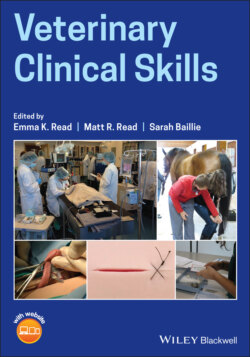Читать книгу Veterinary Clinical Skills - Группа авторов - Страница 17
Accreditation Needs
ОглавлениеThere are a number of veterinary accrediting agencies worldwide, including the American Veterinary Medical Association's Council on Education (AVMA COE), the Royal College of Veterinary Surgeons (RCVS), European Association of Establishments for Veterinary Education (EAEVE), and the Australasian Veterinary Board Council (AVBC). There is significant harmonization of accreditation standards among these organizations, with each recognizing the importance of clinical skills development within the curriculum. More specifically, Standard 9 (Curriculum) of the AVMA COE requirements states the “Curriculum must provide… instruction in both the theory and practice of medicine and surgery applicable to a broad range of species. The instruction must include principles and hands‐on experiences in physical and laboratory diagnostic methods and interpretation (including diagnostic imaging, diagnostic pathology, and necropsy), disease prevention, biosecurity, therapeutic intervention (including surgery), and patient management and care (including intensive care, emergency medicine and isolation procedures) involving clinical diseases of individual animals and populations” (AVMA, 2017).
Additionally, Standard 11 (Outcomes Assessment) states “The college must have processes in place whereby students are observed and assessed formatively and summatively” on nine competencies, the majority of which include clinical skills requirements (e.g., comprehensive patient diagnosis, anesthesia, basic surgical skills, basic medicine skills, emergency and intensive care management, communication skills) (AVMA, 2017). The standard also requires colleges and schools to provide evidence of timely documentation to assure accuracy of the assessment for having attained these competencies.
